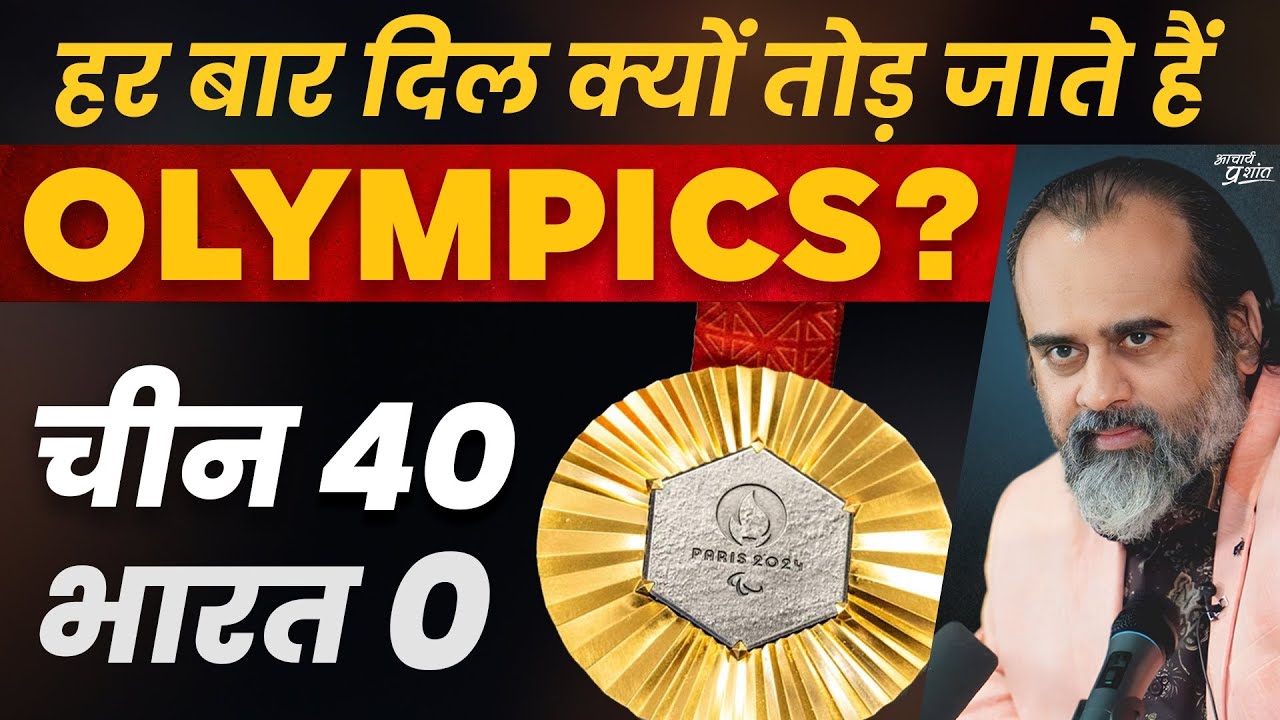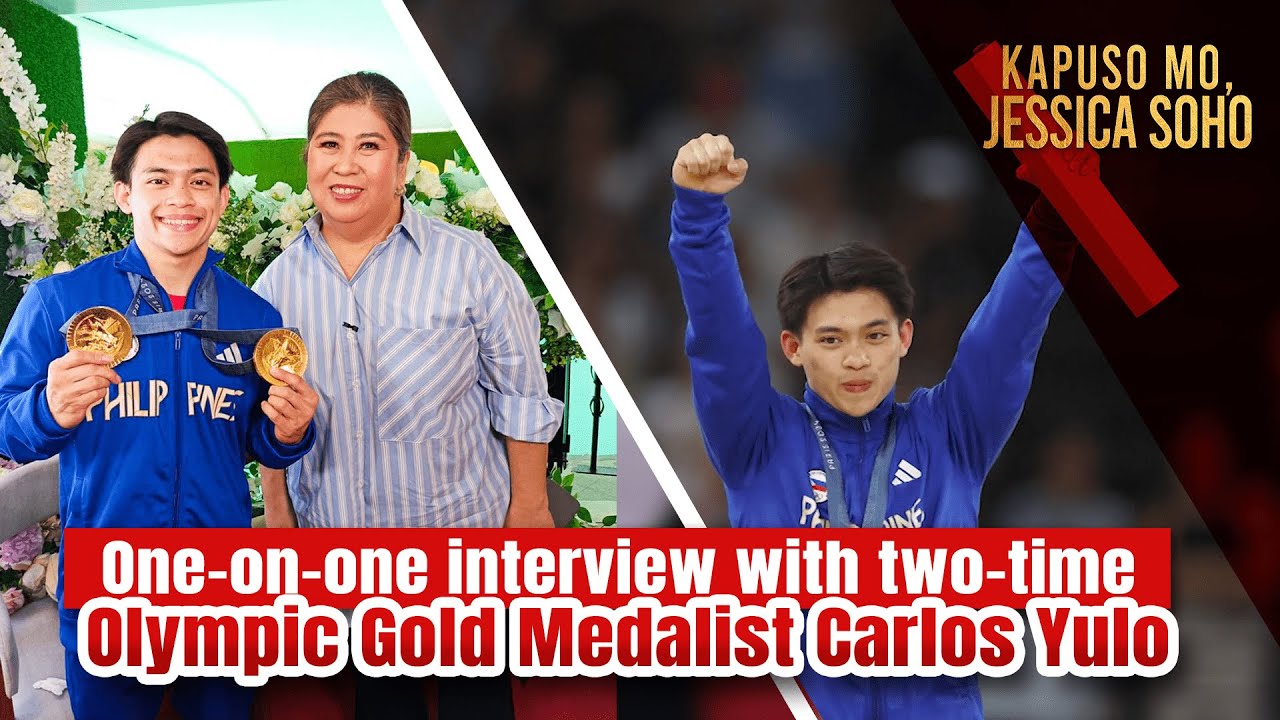India’s Olympic Dream: Why Can't We Win Gold? | Sports vs Politics | Akash Banerjee & Mohit
Summary
TLDRThis script discusses India's performance at the Paris Olympics, highlighting the challenges faced by athletes due to systemic issues, politics, and lack of support. It criticizes the sports administration for prioritizing politics over athletes' welfare and calls for a change in mindset towards sports in India. The episode also touches on the importance of recognizing and nurturing talent from a young age, the need for better infrastructure and coaching, and the role of sports associations in either supporting or hindering athletes' success.
Takeaways
- 🏅 India's performance in the Paris Olympics was considered disappointing, with a decrease in medals compared to Tokyo, highlighting a need for introspection on the country's sports system.
- 🥈 Star athlete Neeraj Chopra's silver medal was a bright spot, but the overall medal tally of six for India, compared to Pakistan's one, was overshadowed by a focus on rivalry rather than global competition.
- 🤔 The script questions the effectiveness of India's sports system, suggesting that despite athletes giving their best, systemic issues may be preventing greater success.
- 🏋️♂️ It criticizes the societal mindset that often discourages children from pursuing sports, viewing it as a waste of time rather than a viable career path.
- 👨👦 The support and guidance of parents and coaches are emphasized as crucial for nurturing talent, with the script pointing out the need for a more supportive environment for budding athletes.
- 💰 The government's Khelo India scheme is mentioned as a significant investment in sports, but the script raises concerns about the allocation of funds and the influence of politics on the distribution.
- 🏆 The leadership of sports federations is scrutinized, with the script arguing that many are led by individuals with political connections rather than sports expertise, which may hinder progress.
- 🤼♀️ The script tells the story of wrestler Vinesh Phogat, whose disqualification from the Paris Olympics due to weight issues highlights the challenges athletes face within the system.
- 🏓 The episode suggests that having athletes lead sports federations, as seen in the recent change in Hockey India's leadership, could lead to improvements in performance.
- 🏫 It calls for the establishment of sports academies in every district to identify and train talent, providing affordable access to sports infrastructure and education.
- 🌟 The importance of celebrating and supporting all athletes, not just those who win medals, is stressed, as is the need for a cultural shift in how sports are valued in India.
Q & A
What significant role did Tom Cruise play in the context of the Paris Olympics mentioned in the script?
-Tom Cruise hoisted the flag for the Los Angeles Games, symbolizing the transition from the Paris Olympics to the upcoming Games in Los Angeles.
How many medals did India win in the Paris Olympics according to the script?
-India won six medals in the Paris Olympics, which included one silver medal won by star athlete Neeraj Chopra and five bronze medals.
How does the script describe the general attitude towards sports in India?
-The script describes a prevailing attitude where sports are often seen as a waste of time and not a viable career path, with an emphasis on academic success over athletic achievements.
What is the 'Khelo India' scheme mentioned in the script, and what is its purpose?
-The 'Khelo India' scheme is a government initiative aimed at improving the sports scene in India and fostering a new generation of Olympians.
How does the script suggest the allocation of funds for sports in India is flawed?
-The script criticizes the allocation of funds as being influenced by politics rather than performance, with states like Uttar Pradesh and Gujarat receiving more funds than Haryana, which produces many medal winners.
What issues does the script raise regarding the leadership of sports associations in India?
-The script raises concerns about the appointment of leaders who are politically connected but lack knowledge or experience in the sport they are supposed to govern.
How does the script discuss the challenges faced by Indian athletes, particularly in wrestling?
-The script discusses issues such as political interference, lack of support, and allegations of mismanagement and mistreatment, as exemplified by the case of Vinesh Phogat.
What is the significance of the Testbook app promotion in the script, and what is the special offer for Deshbhakt subscribers?
-The Testbook app is promoted as a platform for government exam preparation, offering a yearly subscription at a discounted rate for Deshbhakt subscribers during the Independence Day period, with an additional discount using a specific coupon code.
What is the script's stance on the need for change in the Indian sports ecosystem?
-The script advocates for a change in mindset, reduction of politics in sports, increased support for athletes, and the establishment of sports academies in every district to foster a strong sporting culture.
How does the script address the issue of celebrating athletes who do not win medals?
-The script suggests that the government should support and celebrate athletes regardless of whether they win medals, arguing that recognition is due for their efforts and struggles.
What advice does the script give to parents regarding their children's interest in sports?
-The script advises parents to be supportive of their children's interest in sports, emphasizing that success in sports can lead to greatness, just as academic success can lead to becoming a 'Nawab'.
Outlines

This section is available to paid users only. Please upgrade to access this part.
Upgrade NowMindmap

This section is available to paid users only. Please upgrade to access this part.
Upgrade NowKeywords

This section is available to paid users only. Please upgrade to access this part.
Upgrade NowHighlights

This section is available to paid users only. Please upgrade to access this part.
Upgrade NowTranscripts

This section is available to paid users only. Please upgrade to access this part.
Upgrade NowBrowse More Related Video

फिर आए Olympics, फिर टूटा हमारा दिल (साज़िश 4 'C' की) || आचार्य प्रशांत (2024)

Sport à l'école : l'EPS, mal-aimée de l'enseignement en France ? • FRANCE 24

RIO POLUÍDO, APAGÃO E FALTA DE COMIDA MARCAM OLIMPÍADAS EM PARIS | PLANTÃO

Sports Scan 20 (March)

One-on-one interview with two-time Olympic Gold Medalist Carlos Yulo | Kapuso Mo, Jessica Soho

Team USA Olympics BMX Racer Cam Wood on the 'adrenaline rush' of competing | The Excerpt
5.0 / 5 (0 votes)